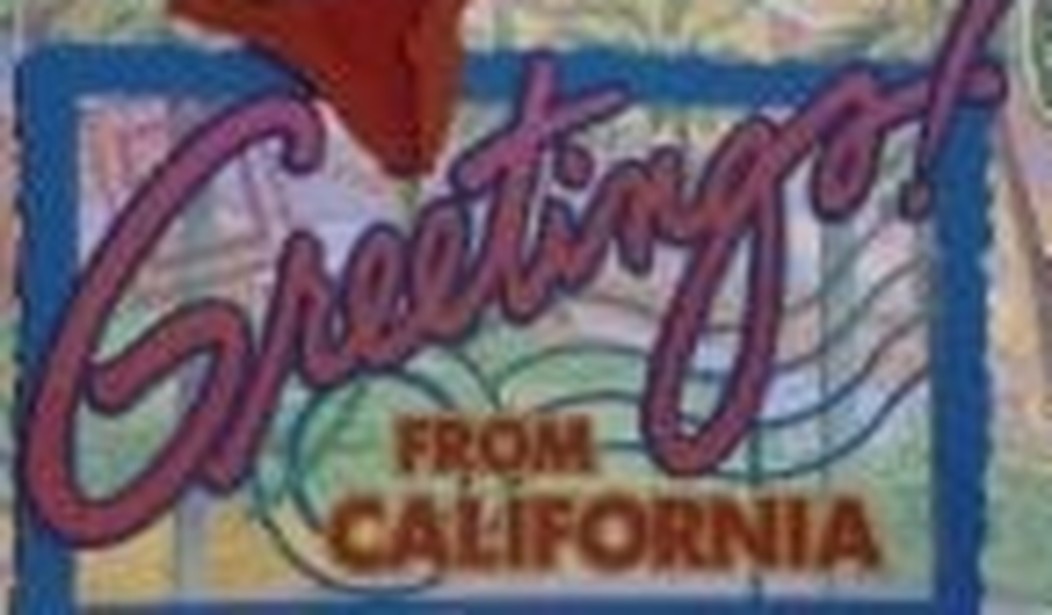An amazing thing happened in Los Angeles, and it didn’t even involve Britney Spears: Early this year, a slew of absentee ballots began showing up in mailboxes across the Golden State. And, unbelievably, the nominees haven’t even been decided yet! People care!
Does bumping up California’s primary from March really mean that, electorally, we matter now?
Before we finally became a part of Super Cowabunga Tuesday, this is how campaign season basically went: Presidential hopefuls would show up just long enough to snag a Randy’s donut and fistfuls of cash. Wasting no time on the little people and going straight for the moguls, candidates treated California as little more than a political ATM, stopping by just often enough to make the maximum withdrawal.
In the 2008 race, producer Jerry Bruckheimer has given to John McCain, as has the new owner of the Los Angeles Times, Sam Zell, who’s also given to Rudy Giuliani. Other Giuliani donors include Kelsey Grammer, Adam Sandler, “24” producer Joel Surnow and producer David Zucker.
Not surprisingly, California really means cha-ching and bling for the Democrats, with Tom Hanks, Hugh Hefner, Jeffrey Katzenberg, Steven Spielberg, Paul Newman, Bob and Harvey Weinstein, Rob Reiner and, hey, Pauly Shore among the financial backers of Hillary Clinton. Not picking faves, many Clinton donors also have ponied up the dough for Barack Obama, like Spielberg and Hef. Obama has also found a friend in Jennifer Aniston and other Hollywood donors including David Geffen, Morgan Freeman, George Clooney and Halle Berry.
And the especially generous — or just politically confused — chairman of Paramount Pictures, Brad Grey, has spread the wealth among McCain, Giuliani, Clinton and Chris Dodd.
But standard cash withdrawals from the Bank of Hollywood aside, do politicians take California’s new starring role in Super Phat Tuesday seriously?
Rewind to mid-November, when I sat down with Giuliani on one of his swings through Cali. Barely had the words “California’s early primary this year –” come out of my mouth when Giuliani — who, er, used to have a big lead in this state — interjected “Good! Good!”
“Candidates usually don’t have a very good track record of showing up in California or spending much time here,” I said.
“I think I’ve exceeded this year the number of appearances that any Republican candidate has made in California in the year before an election since Ronald Reagan, I suspect,” Giuliani said in the first of many invocations of La-La Land’s beloved Gipper. “…And I honestly can tell you, if any of my opponents as a Republican is nominated they will close down their office in California the day after they get nominated. And I’m going to expand my office the day after I’m nominated.”
Nobody’s holding their breath for that, but Rudy’s visits have been hardly unwarranted. There are 173 Republican delegates up for grabs in California on Super Shizzle Tuesday, and 370 for the Democrats.
And whereas a show of hands at GOP events months ago would have yielded a straggler or two for McCain, now the senator has the lead in the best (yes, I’m unabashedly biased) state in the union.
California’s headlining act on Super Swag Tuesday will mean flexing its political muscle to the disdain, most likely, of later states. Some have touted it as bringing greater ethnic diversity to the early stages of the election process. On the other hand, the cost of a California campaign ain’t cheap, another reason why candidates are so into taking the money and running.
Giuliani paid such rapt attention, comparatively, to California because of the state’s traditional moderation. Both parties, in fact, have actually lost members to an increased number of younger independent or “decline to state” registrations over the past decade.
A September survey by the Public Policy Institute of California found that more than half of Democratic voters live either in the densely populated Bay Area or on the L.A. County coast. Republicans were grouped in Orange and San Diego counties (more than 4 in 10) or in the agricultural Central Valley. The PPIC also found that more Californians identify themselves as conservative (37 percent) than liberal (33 percent), with middle-of-the-roaders accounting for 30 percent of likely voters.
In the 2004 general election, John Kerry got California’s electoral votes with 54 percent, including Los Angeles County, but every surrounding county in the L.A. metropolitan area went for George W. Bush. The state even brushed off Bill Clinton’s pushing of the oil tax in 2006, defeating Prop. 87 with 55 percent of voters.
Before Super Crunk Tuesday, the nation’s eyes will be fixed on the Republican debate at the Reagan Library and the Democratic debate at the Kodak Theatre — also known as the hottest tickets in town (and two of the last events where you won’t cross Writers Guild lines). California may be seen as less of a homogenous electorate, and the state’s previously apathetic voters, having felt too tardy in the process to count, will likely be more of a presence.
Super Dope Tuesday may never be the same.
Bridget Johnson is a columnist at the Los Angeles Daily News.









Join the conversation as a VIP Member